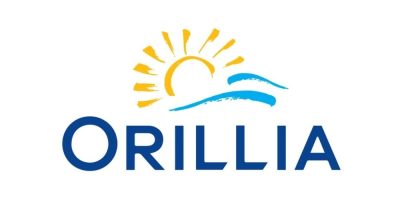
'Why is there so much month left at the end of the money?'
Between the economic downturn and the Christmas bills coming in, keeping on top of the family budget can seem to be an insurmountable task.
And while it is more onerous for some than for others, there are ways to do it, while keeping your head above water until the economy straightens itself out.
The first step, says Mark Borysiak, an insolvency trustee with Hoyes-Michalos in Barrie, is to get organized, get a budget in place, and know what money is coming and what's going out.
"People tend to panic when they get to this point and maybe unnecessarily so. Yeah, it can be a shock when you do see your credit card statement or your bills and they're higher than expected. It's a natural reaction, unfortunately, but if you can get organized and get a budget in place it does help seeing the larger picture."
“A budget is telling your money where to go instead of wondering where it went”
- Dave Ramsey, personal finance personality
Borysiak admits it can be easier said than done, noting there are certain apps or certain steps you can take ... maybe getting an Excel spreadsheet or using a phone app to help you get organized.
Once you're organized, you need to decide how you're going to proceed, go over what bills you have to pay, and when you have to pay them, and then try to get a plan in place for what you're doing with each dollar.
It's never a bad idea, says Borysiak, to give each of your creditors something. "The pay-as-you-go option is a good one, and the idea there would be to pay a little bit of each bill each month. So if you're paid bi-weekly and your phone bill is $120 a month, maybe every paycheque you pay your phone bill $60."
And it never hurts to reach out to a creditor, to explain your situation. Borysiak says a lot of companies may be willing to work with you. So open communication is always a good idea.
If, after trying to manage on your own, you find it's still too much, there are options, albeit extreme, but they offer a fresh start.
The first, says Borysiak, is a consumer proposal.
"It gives you the same protection of bankruptcy from your creditors, but it's not a bankruptcy. Basically, it allows you to cut a deal with your creditors to consolidate your monthly payments, lower them, and reduce your debt. A typical example is usually reducing your debt to 20% of what you owe. It makes it easier once you're able to consolidate your payments into one monthly payment rather than four or five payments a month. It helps you get organized and helps with budgeting."
There are still some bills that would have to be paid, like child support and spousal support, and, if you have a vehicle, you'd continue to make your vehicle payments, if you want to keep your car.
And it will stay on your credit report for about six years. But, says Borysiak, if you aren't able to keep up with your bills, credit is not doing much for you, anyway.
Top 10 benefits of a consumer proposal.
- Hoyes-Michalos
- write-off up to 80% of your debts
- stop collection calls
- stop a wage garnishment
- unfreeze your bank account
- legally binding on all unsecured creditors
- deals with CRA and payday loan companies
- you keep your assets including your tax refund
- reduce your monthly payment to something that is affordable
- no interest on monthly payments
- avoid bankruptcy
If a consumer proposal is not going to help, then you might consider bankruptcy.
"Bankruptcy is going to give you protection from your creditors. It's going to lower your debt and reduce your monthly payments. The difference with bankruptcy is you're not negotiating a payment with your creditors. So depending on your income and your asset situation, it might be a much lower payment over a much shorter period of time. It will affect your credit a little bit more harshly than the consumer proposal."
Some will be embarrassed to admit they've reached this point, but Borysiak says they shouldn't be, "Unfortunately, finances and debts can be taboo subjects, but at a certain point, you do need help. We're not here to judge. We're here to help you through the situation, and find the best option for you."
Mark Borysiak can be reached at 705-719-4948, or at hoyes.com.
~~~~~
To hear more from Mark, listen to our conversation
on a recent What Barrie's Talking About podcast
banner image: Mikhail Nilov via pexels





